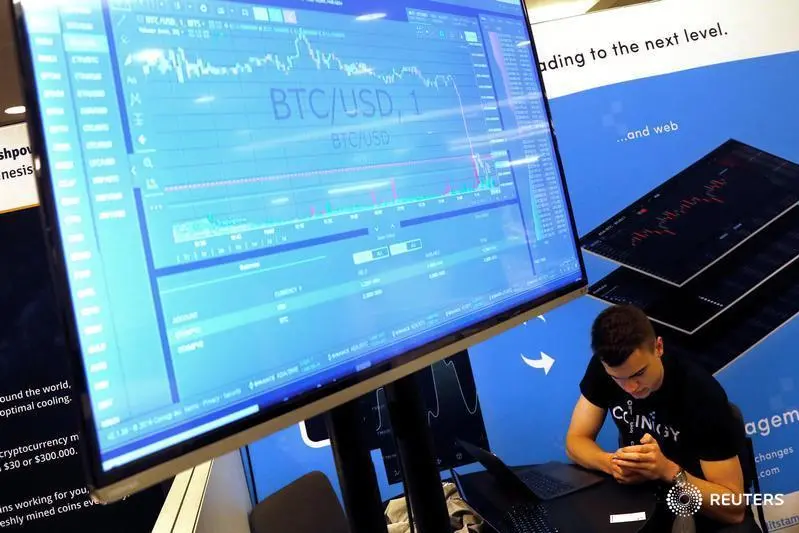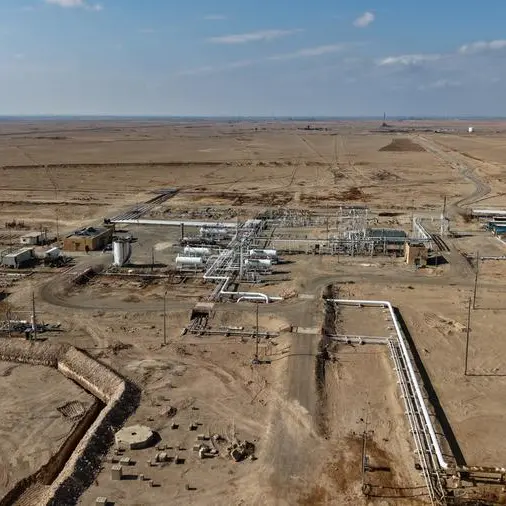PHOTO
(Correction in a typo in the name of cryptocurrency exchange Bitstamp in paragraph 12.)
A lack of market liquidity, regulations and knowledge are the main barriers hindering big investments in blockchain-based companies and cryptocurrencies, a senior digital technology consultant has said.
“The biggest investors in the world are the institutional investors,” Kirill Nikolaev, a Russian consultant in digital technologies, told Zawya. “It is usually pension funds, commercial investment banks, hedge funds and so on. So for these big players in the market, this sector (blockchain-based investments including cryptocurrencies and assets, and the companies that launch and/or manage them) is very flawed. When I speak with them and ask them, ‘Hey guys, what do you think about that? How about investing money in this sector?’ They say ‘listen, this is really a small market’. There is no liquidity.”
Nikolaev, who has more than 20 years of experience in the field operating in several countries, including the United Arab Emirates, told Zawya in a phone interview on Wednesday that traditional investors worry that if they invest a large amount of money in a blockchain- based company, the price of the company could drastically spike, making it unaffordable to many potential suitors. This could subsequently force them to sell at a price that would undervalue the firm, he explained.
Blockchain is an online ledger that has the ability to store, verify and exchange great amounts of data and financial transactions. It has been hailed as the new internet – a technological innovation that has the power to transform the world.
Unlike the commodities and equities markets, cryptocurrencies and assets, which are the tradable items on the blockchain system, have “no liquidity, no legal instruments and platforms, players and companies which they can use to do such investments,” added Nikolaev, who is a co-founder and managing director of a Geneva-based company called NICA that offers asset management services to family businesses and brokerages. He is also a board member of United States- based VIMANA, which is a tech company involved in building a blockchain-based network for the autonomous aerial vehicles industry.
Last August, Bloomberg reported that Initial Coin Offering (ICO) – a process where new cryptocurrency tokens are launched to raise funds - are taking a bit more of a traditional route. It quoted several researchers in the field to support an argument that many start-ups undertaking ICOs find it “easier to raise money from private investors” as opposed to launching cryptocurrencies on a blockchain system and opening an offer to traders with no specific investment target, or to middlemen looking to make a profit from trading, as has happened with new cryptocurrencies since the launch of Bitcoin, the first and most famous cryptocurrency, in 2009.
ICOs have raised billions of dollars for their startups over the past few years, according to several cryptocurrency websites. However, the size of investments remains below the amounts raised via traditional players such as venture capital and private equity firms, according to Nikolaev.
He added that investors’ other major concern is about regulations, how the sandboxes work and if it is safe to invest money in companies that operate via special or temporary licenses.
Regulatory sandboxes allow fintechs and cryptocurrency exchanges to test software products under regulators’ guidance. Bahrain’s Central Bank announced the launch of its fintech sandbox in March last year, and Abu Dhabi Global Market, a governmental entity in charge of issuing market regulations in the emirate of Abu Dhabi, launched its sandbox programme for fintech companies in September last year. Companies are usually granted temporary licenses when they finish the sandbox program.
Nikolaev said the third reason why big investors are not putting money in blockchain-based companies or instruments was related to their inability to make an informed decision on when to enter or exit the market.
“People don’t really understand when it is the right time to go in and when it is the right time to go out, and this is what we saw in 2017 when there was a craziness about going in and buying Bitcoin. People did not understand when it is the right time to buy and the right time to sell…. It was about speculations,” Nikolaev said.
Bitcoin soared to $19,666 in December 2017, but it has since endured a number of sell-offs. It fell through the $4,500 barrier in November last year and it closed at $3,552.32 on Wednesday on Luxembourg-based cryptocurrency exchange, Bitstamp.
Asked about the advice he would give to investors in the blockchain space, and to Gulf Arab governments, Nikolaev said: “For the GCC government, my advice is that nothing will work if you don’t connect the classical financial system and currently the big player in this financial system are banks, where people keep their money, with the sandbox players.”
Nikolaev added that some sandbox-licensed blockchain companies and cryptocurrency traders face problems when dealing with banks as some banks refuse to approve money transfers for cryptocurrency-related deals.
“For investors, the main advice is to pay attention to two things: The first thing is (to do) due diligence (on the companies they are investing in); the second is to diversify their investments to lower the risk. I suggest to buy tokens, equity and give some money as a debt in the company you are investing in… So, for example, if you have $100,000, I suggest to put like $35,000 in equities, $35,000 in tokens and $30,000 to give as a loan with option to later convert it to equity if you want.”
He said blockchain-based businesses are currently going through an evolution stage that could take up to five years before the technology fully develops.
Blockchain was introduced in 2009 by a person whose identity remains unknown, using the name Satoshi Nakamoto, who also created Bitcoin.
Cryptocurrency is a type of a virtual currency that could be bought and traded online between two parties without any intervention from governments or financial institutions or authorities on a secure blockchain system.
(Reporting by Yasmine Saleh; Editing by Michael Fahy)
(yasmine.saleh@refinitiv.com)
Our Standards: The Thomson Reuters Trust Principles
Disclaimer: This article is provided for informational purposes only. The content does not provide tax, legal or investment advice or opinion regarding the suitability, value or profitability of any particular security, portfolio or investment strategy. Read our full disclaimer policy here.
© ZAWYA 2019





















